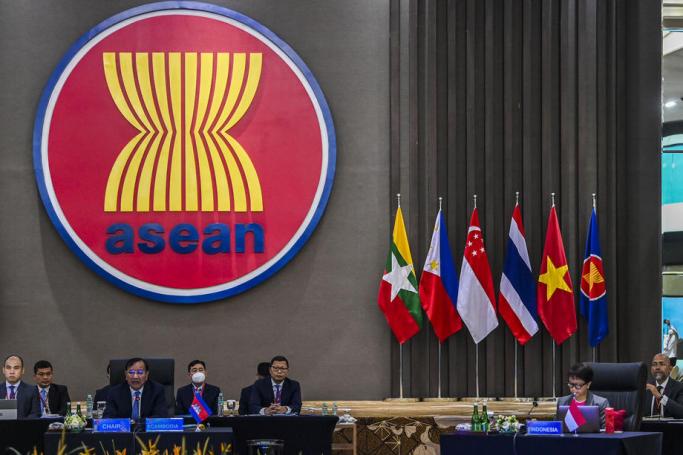Human Rights Watch (HRW) has called on Southeast Asian foreign ministers meeting today (27 October) in Jakarta, Indonesia, to discuss the most pressing crisis facing the region: Myanmar.
According to HRW, last April, the Association of Southeast Asian Nations (ASEAN) adopted a “five-point consensus” in response to the February 2021 military coup in Myanmar, an ASEAN member.
Since then, Myanmar junta chief Sr. Gen. Min Aung Hlaing has defied each point while overseeing crimes against humanity and war crimes by security forces. Just this week, a junta airstrike unlawfully killed at least 60 people at a music concert in Kachin State.
HRW says that today’s discussion, taking place ahead of the ASEAN summit in November, should address how the bloc can revamp its approach to support international efforts to restrict the junta’s access to foreign revenue and arms.
In August, the ASEAN ministers noted they were “deeply disappointed by the limited progress in and lack of commitment” of junta authorities and committed to assessing next steps “consistent with Article 20 of the ASEAN Charter,” which covers serious breaches of the charter or non-compliance.
But HRW believes that the foreign ministers should also look beyond influencing the crisis within Myanmar’s borders.
As military atrocities continue, growing numbers of Myanmar refugees are seeking asylum throughout the region. An estimated 70,000 have fled to neighboring countries since the coup. Yet rather than protecting asylum seekers from the junta’s violence and persecution, regional actors are forcing Myanmar refugees and other nationals back into harm’s way.
Malaysian authorities have accelerated deportations to Myanmar, returning over 2,000 people since April without allowing the United Nations refugee agency to assess their asylum claims.
Thai authorities have similarly pushed asylum seekers back across the Myanmar border without verifying their protection needs.
And last week at the 90th General Assembly of Interpol, the international criminal police organization, the junta’s police chief requested that Indonesia, Malaysia, and Thailand hand over any “terrorists” – its label for all opponents of military rule.
The ASEAN chair noted in a statement yesterday (26 October) that “ASEAN is gravely concerned over the recent escalation of violence in Myanmar” and “deeply saddened by the … immense suffering that ordinary people in Myanmar have endured.”
According to HRW, recognizing the grave abuses the junta has unleashed on Myanmar’s people is only step one. Southeast Asian leaders also need to ensure their own governments don’t force people back to suffer under the brutality they managed to flee.












